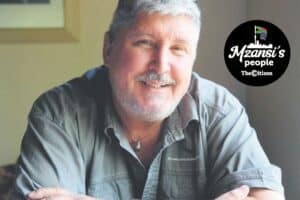Why are politicians running away with millions while the residents live in half-built RDP houses with no water?

The political sphere in the city of Tshwane is getting dangerous and deadly. Initially I thought politics were boring and irrelevant to the average Joe like me. I was wrong.
Besides the entertaining sittings in council where the Economic Freedom Fighters (EFF) disrupt proceedings with placards, chants and demands for caucus meetings, it was amusing watching these politicians participate in the circus they call a council.
In the gallery the media sit on the edge of their seats each week waiting for a glimpse of the next possible scandal to hit the city. It has been a difficult year for the city, and it’s only June. We are on mayor number three or four and crisis number two or 20 for 2023.
ALSO READ: Tshwane to offer financial aid to cholera-hit families… soon
First power: the pylons fell over like dominoes, then the cholera outbreak in Hammanskraal claimed 23 lives. These were not isolated problems.
Apparently, the city was warned about vandalism of the pylons and so have they been warned about the poor water quality in Hammanskraal. It is not safe for human consumption. The EFF illustrated this when they brought two-litre bottles of dirty water to the council and insisted the mayor take a sip.
Was it fair to hold the newly elected Democratic Alliance mayor Cilliers Brink accountable for the cholera outbreak? What would former Tshwane mayor Murunwa Makwarela have done in this situation, given he had to hand himself to the SA Police Service over a “fake” rehabilitation certificate?
Let’s not forget the other former mayor, Randall Williams, who suddenly disappeared from the political playing field following allegations of corruption and more. And another former mayor, Stevens Mokgalapa, who was placed on special leave amid allegations of an intimate engagement at work?
ALSO READ: Anger over service delivery can leave Tshwane burning
There is a battle among the opposition for power in the capital. When the current mayor said he was ramping up service delivery in the city, within days the Tshwane Metro Police Department was out in full force and the grass was being cut.
Perhaps his promise was being fulfilled, or it might just have been pay day, but nevertheless there was more visibility in the city. What was the service delivery and police visibility like in the townships, though?
Recently, when we visited Hammanskraal, I noticed metro police and water tankers in the township. But was it a common occurrence or was it simply because of the ministers and MMCs visiting the area?
When the EFF recently called out the mayor over the dirty water in Hammanskraal, they referred to him as a “Waterkloof mayor”.
ALSO READ: Cholera outbreak: No answers from Tshwane on what happened to R292m tender
While walking down the streets of Hammanskraal looking for people to talk to, I couldn’t help but notice the beautiful gardens the residents have. Ironically, the plants grow well in the dry red sand and dirty Hammanskraal water. Some trees growing in Hammanskraal were better trimmed than those growing in Waterkloof.
But unlike in Waterkloof, the residents in this informal settlement don’t have drinking water, electricity, streetlights, sewage drains or roads. It’s as if people are so used to living in these dire conditions that it is accepted because it is an informal settlement – except that it is not.
Who is responsible for developing the townships and upgrading the living conditions of the thousands of people who still live in extremely rural conditions in 2023? Why are politicians running away with millions of rands while the residents live in half-built RDP houses with no water? Who is really to blame for the water crisis in Tshwane?
For the record, Hammanskraal residents are not the only people living without water. Some residents in Olievenhoutbosch have been without water and sanitation for more than six years. Is there another health crisis bubbling under the surface?
ALSO READ: Saftu to picket in Tshwane over interest rate hike






